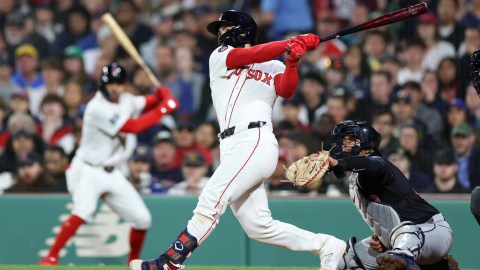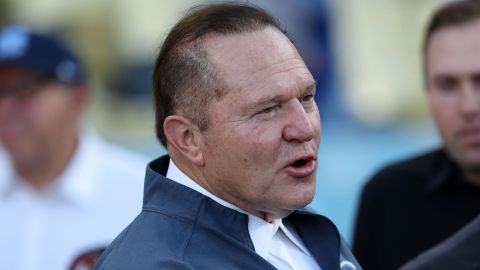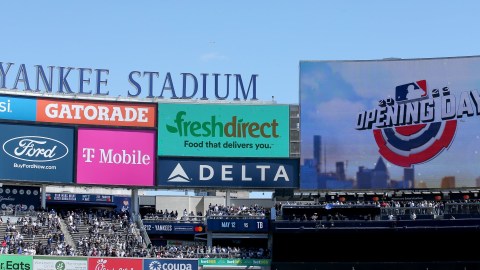With the MLB adding a second wild card to this year’s postseason festivities, the traditional thinking goes that the more teams that are in competition, the better for the league.
What that will likely translate into, however, is a dud of a trade deadline. Plenty of teams will be looking to add pieces in hopes of a stretch run, but there will be fewer “sellers” willing to part ways with key cogs in the hopes of rebuilding for future years.
Baseball’s new rules may result in a more exciting postseason race, but the days of blockbuster trade deadlines are likely over.
As we exit the All-Star break, MLB can tout a new era in competitive baseball. If the season were to end today, the Nationals (!), Pirates (!!) and Orioles (!!!) would all be on their way to the postseason, with the usual playoff stalwarts in Philadelphia and Boston sitting at home. In the American League, six teams are within three games out of a playoff spot. In the NL, three teams are within a half-game.
The competition down the stretch for the playoffs will be fierce and every team will be looking to improve itself by way of trade. With a little more than two weeks remaining between now and the July 31 deadline, however, the glut of buyers means that the sellers can command incredible prices for talent, and the prices could end up becoming prohibitive to serious player movement.
Putting together a blockbuster deal for a Cole Hamels or a Zack Greinke this season will be more difficult than ever before because of two main reasons. The first is that under the new CBA, teams no longer automatically earn a compensatory draft pick for losing a free agent to another team. In years past, if a top player signed with another team after being offered arbitration, the player’s former team earned a “sandwich pick” in the early part of the next year’s draft. Those days are over.
Now, only a team that kept a player throughout the entire course of the season qualifies for that draft pick if they lose out in free agency. So with Hamels’ contract expiring at the end of 2012, the Phillies would gain a draft pick if he were to sign with, say, the Yankees in 2013. If they traded him to another team, however, not only would Hamels’ new team lose out on that pick if they lost him to free agency, but so would the Phillies. Of course, the prospects Philadelphia could get in return for their lefty might be better than the unknown quantity of a draft pick, but it still bears consideration.
The second reason that it will be difficult to pull the trigger on a blockbuster trade is that the prices just might end up being too high. With the supply and demand so out of whack this year thanks to the wild card and the general parity in the league, team executives might not quite know how to adjust to the new marketplace. Will any GMs around the league have the confidence to declare all-in on what could blow up into a mediocre season?
The new wild card may also trick teams into thinking that they are only a year from contention, meaning that they will be more likely to hold on to players who could help other teams more this year.
The Seattle Mariners, for example, have deemed Felix Hernandez “untouchable” in trade talks, despite a league-worst record at the break. The Kansas City Royals, similarly, could ordinarily be considered sellers. The problem is that their best players are also their youngest ones, meaning that they will be likely to hold onto them instead of dealing for more prospects.
Thus, despite all the teams in need of major shake-ups, July 31 may come and go without any earth-shaking moves between contenders. The Red Sox, desperately in need of better starting pitching, may be out of luck in their search for a top-line starter simply because they decide it’s not worth mortgaging the future at the prices teams ask in return.
Plenty of complementary players may change hands over the coming weeks as teams mix and match spare parts — a bullpen arm for an outfielder, a couple of prospects for a fourth or fifth starter — but with such a seller’s market looming, many teams may decide it’s not worth the trouble.



